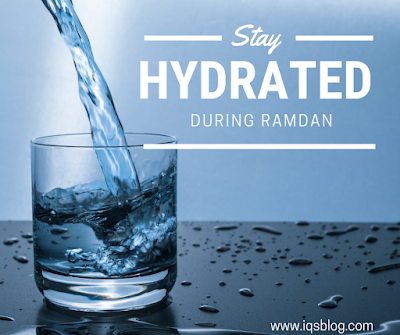As the holy month of Ramadan approaches, Muslims around the world prepare themselves for a period of spiritual reflection, prayer, and fasting. During the month of Ramadan, Muslims abstain from food and water from dawn until dusk. With the long hours of fasting, it can be challenging to ensure that your body receives enough fluids. Therefore, it is crucial to maintain proper hydration levels to avoid dehydration and potential health complications.
Drink Water During Suhoor and Iftar
One of the best ways to stay hydrated during Ramadan is to drink water during suhoor and iftar. Muslims eat Suhoor, which is a meal taken before dawn, before beginning their fast. It is essential to drink enough water during this meal to keep your body hydrated throughout the day. Similarly, at iftar, the meal that breaks the fast, it is crucial to replenish your body with water to make up for the fluids lost during the day.
Avoid Caffeinated Drinks
Caffeinated drinks such as tea, coffee, and energy drinks can cause dehydration, leading to losing body fluids. It is recommended to avoid or limit the consumption of these drinks during Ramadan, especially during the day.
Consume Hydrating Foods
Foods with high water content, such as fruits and vegetables, are an excellent source of hydration. Include fruits and vegetables like watermelon, cucumber, oranges, and tomatoes in your meals during Ramadan to stay hydrated.
Drink Water in Moderation
Drinking too much water at once can lead to bloating and discomfort. It is essential to drink water in moderation throughout the day and avoid overhydrating.
Use Electrolyte Solutions
Electrolyte solutions like oral rehydration salts (ORS) can help replenish the body's lost fluids and salts. These solutions are especially useful for those who are fasting in hot and humid conditions.
Rest and Avoid Strenuous Activities
During Ramadan, it is crucial to conserve energy and avoid strenuous activities that can lead to excessive sweating and dehydration. Resting during the day and limiting physical activity can help conserve energy and reduce the risk of dehydration.
Seek Medical Attention if Necessary
If you experience severe symptoms of dehydration, such as dizziness, confusion, or difficulty urinating, seek medical attention immediately.
By following these tips, you can ensure that you stay hydrated and healthy throughout the holy month. Remember to drink enough water, consume hydrating foods, and rest adequately during the day.
Happy Ramadan!
You may also read
The 15 best foods for high blood pressure



.png)

0 Comments